By: Amra Pepic-Koubati, Instructional Associate for English, DSPS, Orange Coast College
The number of students with disabilities attending postsecondary educational settings has increased significantly in recent years, especially the number of students with learning disabilities (SLD). Despite legislative mandates’ enforcement such as ADA and Section 504 of the Rehabilitation Act, faculty tend to place less credibility on the educational accommodation needs of students with learning disabilities than they do with more visibly disabled students. Collaboration between faculty and Disability Student Services, as well as incorporation of Universal Design of Learning (UDL), and disability-focused training may maximize the learning opportunities for all students, especially those with non-visible disabilities.
Attitudes toward Working with SLD
Throughout my career as an Instructional Associate, who directly works with Students with Learning Disabilities (SLD), I have seen that faculty usually expressed willingness to provide accommodations to students with disabilities (SWD); however, their perception of learning disabilities is much different from other disabilities. Therefore, not surprisingly, every semester there appears to be an issue related to faculty noncompliance. Even though most of my students expressed a wide range of positive interactions, there were numerous instances where they dealt with negative experiences related to noncompliance. Some of the typical challenges I have heard over the past couple of years included:
“My English instructor was reluctant to share her PP slides even though she knew I have a learning disability.”
“My Math professor said I was not allowed to take the weekly Math quizzes at DSS (Disabled Student Services) as it was not considered “fair” to other students.”
“My Math professor said it was not his fault that I tried finding the solution for the math problem that did not have an answer because I took the exam “over there” (Referring to DSS).
Others similarly expressed challenging faculty interactions and thought that faculty perceived them as incompetent, inattentive, and unsuccessful. These negative interactions could significantly be reduced if postsecondary institutions supported disability-focused training, which would empower faculty to fully support the academic needs of SLD.
The literature strongly accentuates the importance of disability- focused training in higher education, especially since there is a lack of knowledge of working with SLD. For example, Skinner (2004) asserted that faculty’s “neutral or unwilling” manner decreased SLDs’ likelihood of requesting accommodations. Findings from other research have also suggested that faculty expressed uncertainty in terms of providing reasonable accommodations to SLD (Jensen, McCrary, Krampe, & Cooper, 2004). Because there is unfamiliarity with the accommodation process, some faculty fear losing academic integrity: an attitude that could considerably be changed with training initiatives.
Disability-Focused Training (Research)
To shift from integration to inclusion, postsecondary settings must promote awareness and better knowledge of disability related topics, which would positively and effectively influence faculty attitudes toward working with SLD. Topics that can constitute disability-focused training in higher education include: collaboration between faculty and Disability Student Services, reasonable accommodations, inclusive instruction, Universal Design of Learning (UDL) that could maximize the learning for all students), and disability laws. The importance of these topics is supported in Park, Roberts, and Stodden’s (2012) study, Practice Brief: Faculty Perspectives on Professional Development to Improve Efficacy when Teaching Students with Disabilities. They affirmed positive impact on faculty perceptions (after attending training workshops) in terms of providing accommodations and utilizing UDL in their classrooms. Further substantiating these findings, Debrand and Salzberg’s (2005) study indicated faculty high interest in learning about the accommodation process and law sections, particularly if the case scenarios included an example of the accommodation process. Equally, 123 faculty respondents from Sniatecki, Perry, and Snell’s (2015) study indicated the interest in the following disability-related workshop topics: UDL, Accommodations 101, and Disability Dos and Don’ts. The same interest was expressed when 214 directors of the disability service offices and members of Association on Higher Education and Disability (AHEAD), confirmed that providing hands-on, real-life scenarios relatable to academic standards, rights and responsibilities during accommodation process, approaches to teaching, and disability related laws that govern higher education all played a pertinent role in providing equal opportunity rights to students with disabilities (Salzberg, Peterson, Debrand, Blair, Carsey, & Johnson, 2002).
The move toward disability-focused training in postsecondary educational settings can help faculty better understand and assess the academic needs of students with hidden disabilities. These students’ academic potential could be maximized if faculty fully recognized students’ educational barriers. Enhancing faculty knowledge about the collaboration with DSS accommodation process, incorporating inclusive classroom pedagogies, and understanding postsecondary disability laws could initiate a framework for culturally responsive, inclusive, and diverse pedagogy that could more effectively meet the needs of all students at institutions of higher education.
Reference list
Debrand, C. C., & Salzberg, C. L. (2005). A validated curriculum to provide training to faculty regarding students with disabilities in higher education. Journal of Postsecondary Education and Disability, 18(1), 49-61.
Jensen, J. McCarary, N. Krampe, K. Cooper, J. (2004). Trying to do the right thing: Faculty attitudes toward accommodating students with learning disabilities.” Journal of Postsecondary Education and Disability, 17(2), pp. 81–90.
Park, J. Roberts, K., & Stodden, R. (2012). Practice Brief: Faculty perspectives on professional development to improve efficacy when teaching students with disabilities. Journal of Postsecondary Education and Disability, 25(4), 377-383.
Salzberg, C. L., Peterson, L. Debrand, C. C., Blair, R. J., Carsey, A. C., & Johnson, A. S. (2002). Opinions of disability service Directors on faculty training: The need, content, issues, formats, media, and activities. Journal of Postsecondary Education and Disability, 15(2), 101-14.
Skinner, M. E. (2004). College students with learning disabilities speak out: What it takes to be successful in postsecondary education. Journal of Postsecondary Education and Disability, 17(2), 91-104.
Sniatecki, J. L., Perry, H. B., & Snell, L. H. (2015). Faculty attitudes and knowledge regarding college students with disabilities. Journal of Postsecondary Education and Disability, 28(3), 259-275.
